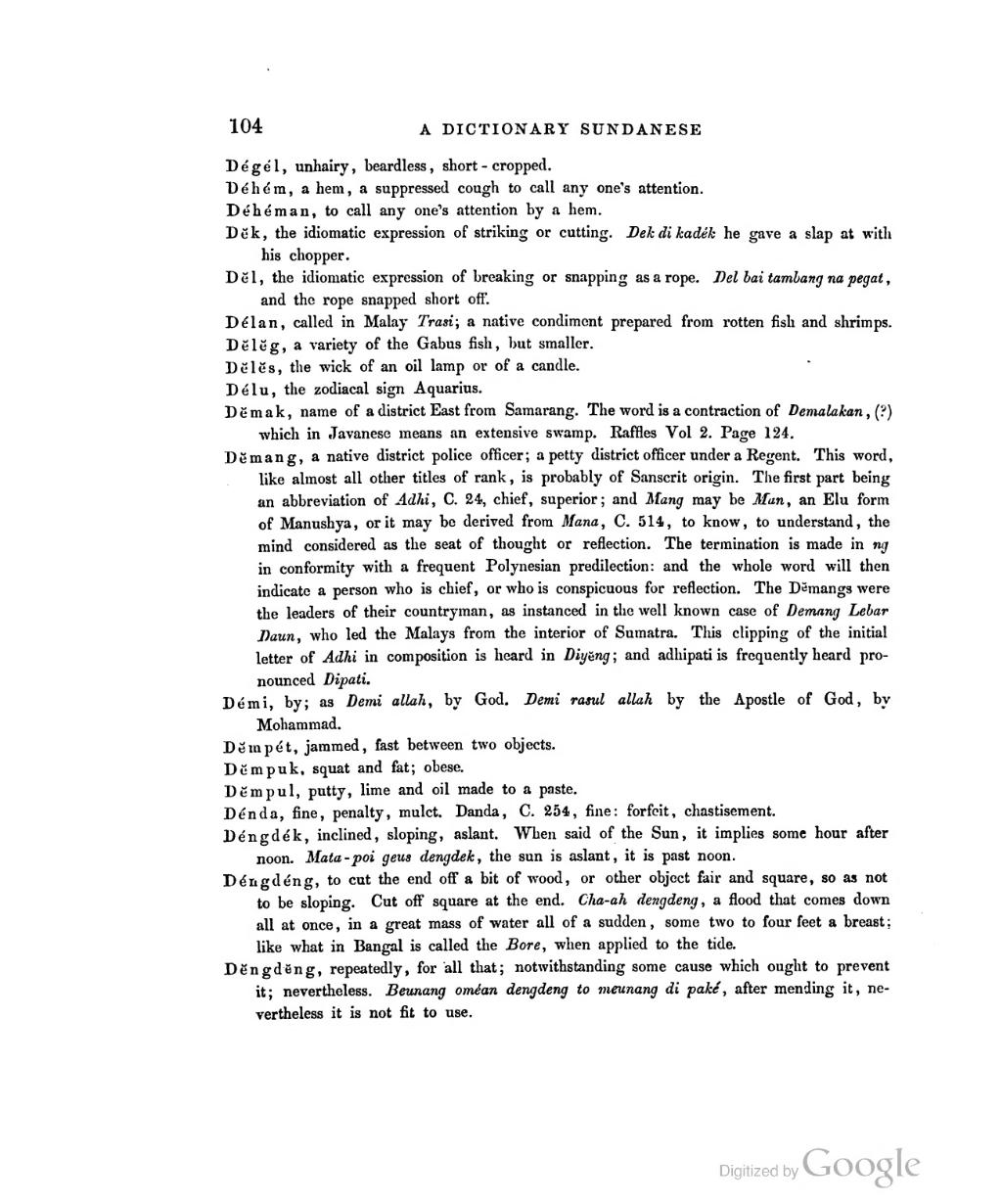Dégél, unhairy, beardless, short-cropped
Déhém, a hem, a suppressed cough to call any one’s attention.
Déhéman, to call any one’s attention by a hem.
Dék, the idiomatic expression of striking or cutting. Dek di kadék he gave a slap at with his chopper.
Dél, the idiomatic expression of breaking or snapping as a rope. Dél bai tambang na pegat, and the rope snapped short off.
Délan, called in Malay Trasi; a native condiment prepared from rotten fish and shrimps.
Délég, a variety of the Gabus fish, but smaller.
Délés, the wick of an oil lamp or of a candle.
Délu, the zodiacal sign Aquarius.
Děmak, name of a district East from Samarang. The word is a contraction of Demalakan, (?) which in Javanese moans an extensive swamp. Raffles Vol 2. Page 124,
Děmang, a native district police officer; a petty district officer under a Regent. This word, like almost all other titles of rank, is probably of Sanscrit origin. The first part being an abbreviation of Adhi, C. 2, chief, superior; and Mang may be Man, an Elu form of Manushya, or it may be derived from Mana, C. 5 14, to know, to understand, the mind considered as the seat of thought or reflection. The termination is made in ng, in conformity with a frequent Polynesian predilection: and the whole word will then indicate a person who is chief, or who is conspicuous for reflection. The Děmangs were the leaders of their countryman , as instanced in the well known case of Demang Lebar Daun, who led the Malays from the interior of Sumatra. This clipping of the initial letter of Adhi in composition is heard in Diyêng; and adhipati is frequently heard pro- nounced Dipati.
Démi, by; as Demi allah, by God. Demi rasul allah by the Apostle of God, by Mohammad.
Děmpét, jammed, fast between two objects.
Děmpuk. squat and fat; obese.
Děmpul, putty, lime and oil made to a paste.
Dénda, fine, penalty, mulet. Danda , C. 254, fine: forfeit , chastisement.
Déngdék, inclined, sloping, aslant. When said of the Sun, it implies some hour after noon, Mata-poi geus dengdek, the sun is aslant, it is past noon.
Déndéng, to cut the end off a bit of wood, or other object fair and square, so as not to be sloping. Cut off square at the end. Cha-ah déngdéng, a flood that comes down all at once, in a great mass of water all of a sudden, some two to four feet a breast; like what in Bangal is called the Bore, when applied to the tide.
Déngděng, repeatedly, for all that; notwithstanding some cause which ought to prevent it; nevertheless. Beunang oméan dengdeng to meunang di paké, after mending it, nevertheless it is not fit to use.

